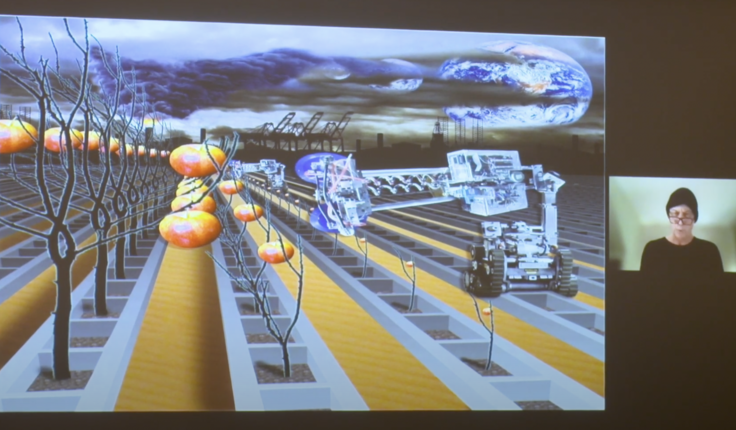News
The problem of the two worlds
Posted 28 11 2022
in News

Watch Video
One of the key international speakers at October’s 2022 NZILA Firth Conference was Richard J. Weller who promised delegates he was going to speak about big things.
The Meyerson Chair of Urbanism and Professor and Chair of Landscape Architecture and Executive Director of the McHarg Centre at The University of Pennsylvania Richard is also a former co-director of design company Room 4.1.3.
In more than three decades of practice he has worked as an academic and a consultant specialising in the formative stages of projects ranging across all scales. Richard’s work has been frequently awarded in international design competitions and exhibited in galleries such as the Guggenheim in New York, the Venice Biennale, the Museum of Contemporary Art in Sydney, the Isabella Stewart Gardner Museum in Boston, the MAXXI Gallery in Rome, the Canadian Design Museum in Toronto and the Chinese Academy of Fine Art in Beijing.
He has also published seven books, well over 100 single-authored academic papers, book chapters and articles on the theory and practice of landscape architecture and urban design and is also the Creative Director of the interdisciplinary journal of landscape architecture LA+.
His recent research examines global flashpoints between biodiversity and urban growth with an emphasis on peri-urban territory in biodiversity hotspots.
He began his presentation to the NZILA Firth conference by promising he was “going to speak about really big things” along with reflection on the role of landscape architects in relation to Anthropocene. (For the uninitiated Anthropocene is an unofficial unit of geologic time, used to describe the most recent period in Earth’s history when human activity started to have a significant impact on the planet’s climate and ecosystems.)
He told delegates that could be a bit of a problem, tackling the big topics the landscape architecture profession is facing right now, including climate change.
“We all feel small and incapacitated as individuals,” he said, “ but we have to stay with that feeling because the personal and professional anxiety that it causes is central to how we cope with the shock of the Anthropocene.
"It's almost like an intellectual panic to try and understand what's happening and what we've what we've done, really. So, you know, how we cope with the shock of the Anthropocene is obviously nothing could be more important right now.”
Richard told his audience that when it comes to battling climate change we are entering an era “where every molecule counts, where where everything you consume has a history and has a future of effects that need to be taken into account. We're moving into an era where everything needs to be redesigned. Literally every square meter of ground is being contested.”
He says the challenge facing the landscape in the context of an urbanising planet is to have simply enough to sustain a population tipped to reach 10 billion people sometime this century.
His presentation also focused on Aotearoa New Zealand. “New Zealand, incidentally, already has something like 30% protected area, depending on how you define protected area.”
He went on to imagine what New Zealand might look like in 2072.
“I would suggest the good thing to do would be to undertake a well-funded, high profile study of New Zealand's carrying capacity and present the public with a range of scenarios as to what the country could look like in 2072, which will be the year that the Institute celebrates its 100th anniversary.”
You can see Richard J Weller’s entire presentation in the video below.
14 Apr
NZILA Board nominations close tonight

Read the insights from current Board members
What does the current Board have to say about this opportunity? REMINDER: Board Nominations close tonight, 14 April, 11.59pm We …
08 Apr
Update from Environmental Legislation Working Group
RMA Reforms and NZILA Wānanga
Our understanding of Spatial Planning and in creating well-functioning environments is more deeply considered than simply green fluff - the …
02 Apr
Follow up from the virtual IFLA World Council (22 and 23 March)

Did you attend the virtual IFLA World Council held last weekend? Presentations and ReportsThese can be found here. RecordingFor those …
Events calendar
Full 2025 calendar